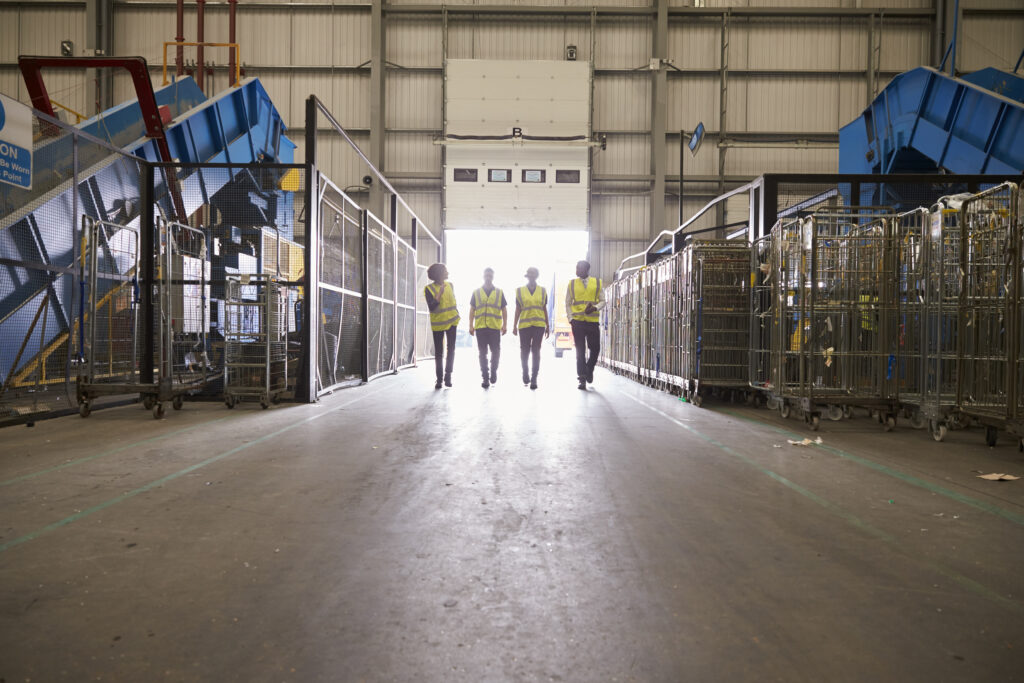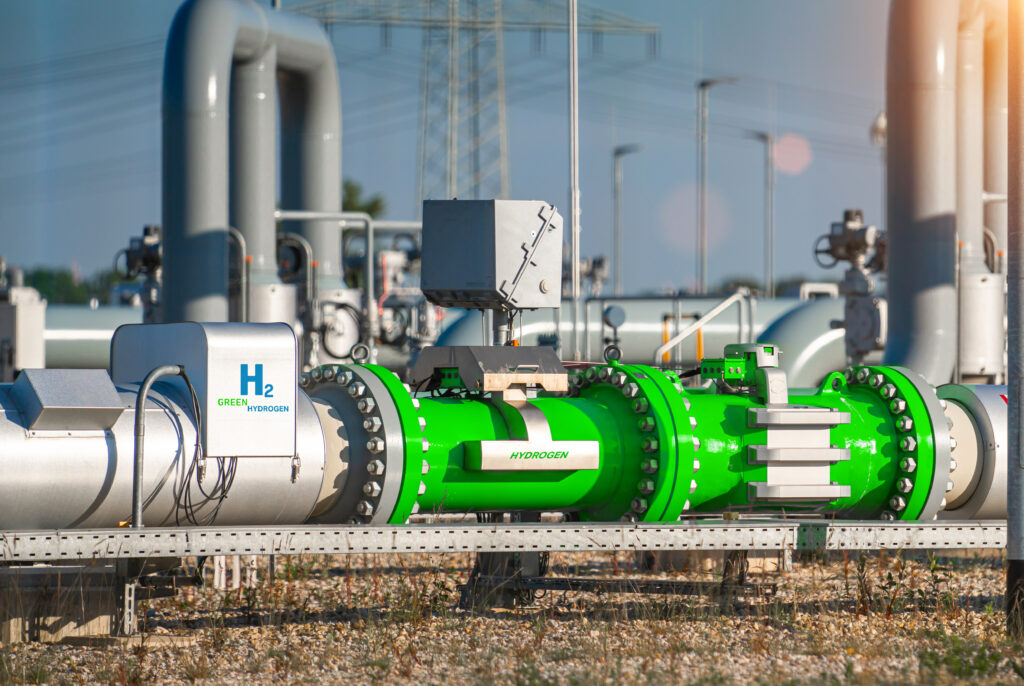Creating a Fund to Kickstart Climate Ready Technologies

In East Asia there are worsening natural disasters resulting from extreme weather events such as typhoons, heavy rainfall, and droughts, causing deteriorating quality and quantity of water supply; declining agricultural productivity; outbreaks of water-borne diseases; and reduced effectiveness of natural coastal defences, to name a few. However, less developed nations lack the technologies that exist elsewhere to effectively support national strategies in climate mitigation and adaptation due to nascent or non-existent markets for those technologies in their respective countries. A client sought to establish a fund that would support the development of markets for climate ready technologies in several lesser developed East Asian Countries. We supported the client to develop this regional programme first by identifying the climate rationale in each of the countries where the fund would operate. This provided the justification for the technological intervention; however, it did not assess the relative markets for those technologies. For the fund to have an impact it would need to provide financial support to technologies that would be considered additional to ongoing interventions including markets that could be considered mature. For that reason, we first identified technologies that could in theory be used to address climate impacts and mitigate emissions in those countries and then undertook a comprehensive additionality analysis on each of the technologies so that the fund could support truly additional technologies. We also developed methodologies to calculate the potential impact of the fund. Using our adaptation and mitigation expertise and knowledge of climate financiers, we then supported the development of a proposal and feasibility documents to attract investment from major international climate funders to capitalize this proposed fund. AvaTerra Global has a deep bench of expertise that can support the development of complex, multifaceted, multinational, regional climate finance programmes. Contact us to explore how we can support you in these efforts. We have anonymized this story to protect the confidentiality of our client and where it took place, but the actions and results are real. Back to Stories Page Our Stories AvaTerra Global has vast global experience leading high-impact engagements across the climate, development, and sustainable investment landscapes. We invite you to read about some of the results we have delivered for our clients. A Holistic Climate Project for Small Islands Adaptation | Capacity Building | Clean Energy | Climate Finance | Nature-Based Solutions | Theory of Change Island ecosystems are often isolated and fragile and hence are more vulnerable to the effects of climate change. In addition,… Read More Aligning Ambition: Building a Climate Investment Vision that Can Attract Finance Climate Finance | Climate Investment Planning | Country Platforms In a country seeking to scale up climate action, the government set out to develop a climate investment plan that… Read More Bridging the Gap: From Climate Proposals to Bankable Finance Climate Finance | Investment Mobilization | Nature-Based Solutions A leading organization in nature-based solutions had a bold vision – channeling finance to ecosystem services, agroforestry, and smallholder resilience.… Read More Building Knowledge, Building Adaptation Adaptation | Capacity Building | Climate Finance | Climate Policy | Institutional Development | Investment Mobilization A well-established training institution in a geographically diverse and highly populated part of the world was looking to integrate adaptation… Read More Creating a Fund to Kickstart Climate Ready Technologies Adaptation | Climate Finance | Climate Rationale | Climate Technologies | Decarbonization In East Asia there are worsening natural disasters resulting from extreme weather events such as typhoons, heavy rainfall, and droughts,… Read More Developing Carbon Trading Methodologies for Increased Recycling of Solid Waste Carbon Trading | Climate Finance | Decarbonization | Investment Mobilization Deforestation is the primary source of greenhouse gas (GHG) emissions in much of the humid tropics, with a significant amount… Read More Investing in Advanced Low-Carbon Climate Technologies Climate Finance | Climate Technologies | Decarbonization | Investment Mobilization | Technology Transfer A Fortune 500 company was interested in identifying emerging low-carbon technologies (LCTs) and applications where the company could apply its… Read More Nature-Based Solutions to Combat Water Related Disasters Climate Finance | Disaster Preparedness | Disaster Risk Management | Early Warning Systems | Nature-Based Solutions | Water Sector Parts of South-East Asia are at extreme risk from the impacts of typhoons and resultant flooding. One such area was… Read More Raising Profiles, Raising Finance Climate Investment Planning | Climate Rationale | Institutional Development | Investment Mobilization | National Meteorological and Hydrological Services (NMHS) A leading ministry in a Least Developed Country was keen to raise its profile across government as a key enabler… Read More Tackling Illegal Tropical Deforestation through Climate Policy Adaptation | Climate Finance | Climate Policy | Deforestation | Theory of Change Deforestation is the primary source of greenhouse gas (GHG) emissions in much of the humid tropics, with a significant amount… Read More Let’s Stay Connected If you’re exploring opportunities to collaborate or want to see how we can support your work, provide your email address and sector here. Knowing a little about your context helps us better understand how we can support you. Get in touch with our experts
Developing Carbon Trading Methodologies for Increased Recycling of Solid Waste

Deforestation is the primary source of greenhouse gas (GHG) emissions in much of the humid tropics, with a significant amount occurring illegally. Not only does this have negative climate impacts but also far-reaching biodiversity and social consequences. In a country where forested landscape makes-up a large part of its geography, illegal deforestation was primarily being caused by mining activities and agricultural expansion, with wealthier landowners often preying on poorer communities to implement their illegal activities. States have principally relied on the federal government for law enforcement, however, this strategy has proven to be inconsistent and dependent on which political party holds power in the capital. For this reason, a consortium of States has agreed to greater cross border cooperation including policy and law enforcement to curb illegal deforestation. Direct action against illegal actors is more effective when policies, laws and enforcement tactics are standardised, coordinated, and shared among states in a federally governed country. With a high-level framework agreed to among states, a client sought to develop a cross-cutting GHG mitigation and adaptation project that would create a consistent policy environment for state governments and standardised training and legal structure for law enforcers. Combined with adaptation measures that aimed to create employment and development in areas of high illegal deforestation, this project promises to be highly effective at reaching net zero deforestation by 2030, the country’s ambitious goal. We worked with the client to develop the project from a funding and effectiveness lens. Using our expertise in policy and adaptation strategies, we helped develop a clear identification of the problem and the theory of change that would lead to achieving state and national objectives. We then supported the client to create sound and practical activities that could be funded by the international community. We then developed a proposal to access funding from an international donor. Identifying the problem, putting in place the right policies, and accessing financing are all frequent challenges faced by countries seeking to achieve their climate ambitions and mobilize funds from the international community. Developing a theory of change and the right activities that can address the underlying causes of a problem while achieving the desired objectives of the investment are common areas where we see countries requiring support. Reach out to us and let us help you design the right activities and theory of change to achieve outcomes and support your climate finance mobilization needs. We have anonymized this story to protect the confidentiality of our client and where it took place, but the actions and results are real. Back to Stories Page Our Stories AvaTerra Global has vast global experience leading high-impact engagements across the climate, development, and sustainable investment landscapes. We invite you to read about some of the results we have delivered for our clients. A Holistic Climate Project for Small Islands Adaptation | Capacity Building | Clean Energy | Climate Finance | Nature-Based Solutions | Theory of Change Island ecosystems are often isolated and fragile and hence are more vulnerable to the effects of climate change. In addition,… Read More Aligning Ambition: Building a Climate Investment Vision that Can Attract Finance Climate Finance | Climate Investment Planning | Country Platforms In a country seeking to scale up climate action, the government set out to develop a climate investment plan that… Read More Bridging the Gap: From Climate Proposals to Bankable Finance Climate Finance | Investment Mobilization | Nature-Based Solutions A leading organization in nature-based solutions had a bold vision – channeling finance to ecosystem services, agroforestry, and smallholder resilience.… Read More Building Knowledge, Building Adaptation Adaptation | Capacity Building | Climate Finance | Climate Policy | Institutional Development | Investment Mobilization A well-established training institution in a geographically diverse and highly populated part of the world was looking to integrate adaptation… Read More Creating a Fund to Kickstart Climate Ready Technologies Adaptation | Climate Finance | Climate Rationale | Climate Technologies | Decarbonization In East Asia there are worsening natural disasters resulting from extreme weather events such as typhoons, heavy rainfall, and droughts,… Read More Developing Carbon Trading Methodologies for Increased Recycling of Solid Waste Carbon Trading | Climate Finance | Decarbonization | Investment Mobilization Deforestation is the primary source of greenhouse gas (GHG) emissions in much of the humid tropics, with a significant amount… Read More Investing in Advanced Low-Carbon Climate Technologies Climate Finance | Climate Technologies | Decarbonization | Investment Mobilization | Technology Transfer A Fortune 500 company was interested in identifying emerging low-carbon technologies (LCTs) and applications where the company could apply its… Read More Nature-Based Solutions to Combat Water Related Disasters Climate Finance | Disaster Preparedness | Disaster Risk Management | Early Warning Systems | Nature-Based Solutions | Water Sector Parts of South-East Asia are at extreme risk from the impacts of typhoons and resultant flooding. One such area was… Read More Raising Profiles, Raising Finance Climate Investment Planning | Climate Rationale | Institutional Development | Investment Mobilization | National Meteorological and Hydrological Services (NMHS) A leading ministry in a Least Developed Country was keen to raise its profile across government as a key enabler… Read More Tackling Illegal Tropical Deforestation through Climate Policy Adaptation | Climate Finance | Climate Policy | Deforestation | Theory of Change Deforestation is the primary source of greenhouse gas (GHG) emissions in much of the humid tropics, with a significant amount… Read More Let’s Stay Connected If you’re exploring opportunities to collaborate or want to see how we can support your work, provide your email address and sector here. Knowing a little about your context helps us better understand how we can support you. Get in touch with our experts
Investing in Advanced Low-Carbon Climate Technologies

A Fortune 500 company was interested in identifying emerging low-carbon technologies (LCTs) and applications where the company could apply its expertise in the high-tech and environmental sectors to bring innovative climate mitigation technologies based on plasmas.1 The overall objective of the consultation was to identify opportunities for the company to invest in, targeting applications and markets generating revenues in the range of USD 200+ million per year. This required evaluating opportunities created by the Paris Agreement and international greenhouse gas (GHG) mitigation policies, including Nationally Determined Contributions (NDCs), Low Emission Development Strategies (LEDS), Technology Needs Assessments (TNAs), and Nationally Appropriate Mitigation Actions (NAMAs) to identify markets that intersected the company’s plasma-based technologies. The team data-mined the global scientific and intellectual property literature in the energy, transport, construction, waste management, consumer goods, and agriculture sectors to identify the most active and innovative fields making use of plasmas for GHG emissions mitigation. After reviewing technologies having a minimum Technology Readiness Level of seven (TRL 7)2, we selected and prioritized the four most attractive applications for in-depth analysis: plasma-based waste gasification, green hydrogen production, textile treatment, and plasma-based seeds germination. Using a multi-criteria decision process based on technology differentiation, environmental benefits, market sizes, competitive landscape, synergistic business opportunities, and technology, policy, and business risks, we conducted a second-level due diligence to identify investment opportunities for the company, with a view to acquire innovative startups. AvaTerra Global works with Fortune 500 corporations and investors to identify new markets and investment opportunities for the development and transfer of low-carbon technologies. Contact us if you would like to learn more. 1Plasma is the fourth state of matter after solid, liquid, and gas, where atoms and molecules are ionized and highly energized, thereby enabling energy-efficient chemical reactions that can contribute to the formation of new materials with a reduced carbon footprint, or the abatement of effluents in hard-to-decarbonize sectors. 2A Technology Readiness Level (TRL) is a technique for measuring the maturity level of a technology. This is measured on a scale of 1 – 9 with each successive level having its own definition showing further maturation of the technology. A TRL of 7 indicates a prototype demonstration has been completed. We have anonymized this story to protect the confidentiality of our client and where it took place, but the actions and results are real. Back to Stories Page Our Stories AvaTerra Global has vast global experience leading high-impact engagements across the climate, development, and sustainable investment landscapes. We invite you to read about some of the results we have delivered for our clients. A Holistic Climate Project for Small Islands Adaptation | Capacity Building | Clean Energy | Climate Finance | Nature-Based Solutions | Theory of Change Island ecosystems are often isolated and fragile and hence are more vulnerable to the effects of climate change. In addition,… Read More Aligning Ambition: Building a Climate Investment Vision that Can Attract Finance Climate Finance | Climate Investment Planning | Country Platforms In a country seeking to scale up climate action, the government set out to develop a climate investment plan that… Read More Bridging the Gap: From Climate Proposals to Bankable Finance Climate Finance | Investment Mobilization | Nature-Based Solutions A leading organization in nature-based solutions had a bold vision – channeling finance to ecosystem services, agroforestry, and smallholder resilience.… Read More Building Knowledge, Building Adaptation Adaptation | Capacity Building | Climate Finance | Climate Policy | Institutional Development | Investment Mobilization A well-established training institution in a geographically diverse and highly populated part of the world was looking to integrate adaptation… Read More Creating a Fund to Kickstart Climate Ready Technologies Adaptation | Climate Finance | Climate Rationale | Climate Technologies | Decarbonization In East Asia there are worsening natural disasters resulting from extreme weather events such as typhoons, heavy rainfall, and droughts,… Read More Developing Carbon Trading Methodologies for Increased Recycling of Solid Waste Carbon Trading | Climate Finance | Decarbonization | Investment Mobilization Deforestation is the primary source of greenhouse gas (GHG) emissions in much of the humid tropics, with a significant amount… Read More Investing in Advanced Low-Carbon Climate Technologies Climate Finance | Climate Technologies | Decarbonization | Investment Mobilization | Technology Transfer A Fortune 500 company was interested in identifying emerging low-carbon technologies (LCTs) and applications where the company could apply its… Read More Nature-Based Solutions to Combat Water Related Disasters Climate Finance | Disaster Preparedness | Disaster Risk Management | Early Warning Systems | Nature-Based Solutions | Water Sector Parts of South-East Asia are at extreme risk from the impacts of typhoons and resultant flooding. One such area was… Read More Raising Profiles, Raising Finance Climate Investment Planning | Climate Rationale | Institutional Development | Investment Mobilization | National Meteorological and Hydrological Services (NMHS) A leading ministry in a Least Developed Country was keen to raise its profile across government as a key enabler… Read More Tackling Illegal Tropical Deforestation through Climate Policy Adaptation | Climate Finance | Climate Policy | Deforestation | Theory of Change Deforestation is the primary source of greenhouse gas (GHG) emissions in much of the humid tropics, with a significant amount… Read More Let’s Stay Connected If you’re exploring opportunities to collaborate or want to see how we can support your work, provide your email address and sector here. Knowing a little about your context helps us better understand how we can support you. Get in touch with our experts

